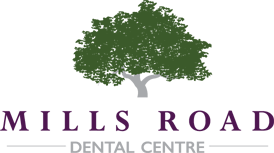
Each year in Australia, around 700 new cases of oral cancer are diagnosed. Despite this, many people remain unfamiliar with the disease—or even that dentists routinely check for signs of oral cancer during regular cleanings and examinations.
Early detection for mouth cancers is crucial, and another reason why staying up-to-date with dental checkups is just as vital.
So, what Is Oral Cancer?
Oral cancer, also called mouth cancer, is cancer that develops in or around the mouth. Common areas include the tongue, cheeks, gums, lips, the roof or floor of the mouth, and tonsils. Early detection is critical, as oral cancers identified in their initial stages have a survival rate of approximately 90%.
How do people detect oral cancer?
Oral cancer can be tricky to catch in its early stages, as symptoms are often subtle or go unnoticed until the cancer has advanced. Regular dental exams are essential to ensure any early signs are identified.
Some of the common symptoms of oral cancer include:
• Pain when swallowing
• Persistent mouth pain
• Sores on the lips or gums that don’t heal
• Lumps inside the mouth
• White or red patches in the mouth
Now, it’s worth noting that these symptoms aren’t always cancerous (so don’t panic!) and may be related to other health issues. Still, it’s important to get any such symptoms checked.
How do dentists at Mills Road check for oral cancer?
At Mills Road Dental, our team incorporates oral cancer screenings into your routine dental exam/scale/cleans (preventative dental appointment).
During your checkup:
• X-rays are taken to look for underlying abnormalities.
• During the scale and clean, we perform a manual and visual inspection of your mouth, as well as your jaw and neck, to check for unusual lumps, bumps, or discolourations.
If we notice anything unusual, we may refer you to a specialist clinic for a biopsy, where a small tissue sample is tested for cancer.
Risk Factors for Oral Cancer
Although oral cancer can affect anyone, certain risk factors may increase your likelihood of developing it, including:
• Smoking or chewing tobacco
• Regular alcohol consumption
• Chewing betel quid
• Viral infections such as HPV
• Long-term immunosuppression
• Being male
• A family history of cancer
Oral Cancer FAQs
What are the precautions for oral cancer?
Avoid tobacco use (smoking or chewing) and avoid regular alcohol consumption. Quitting tobacco greatly lowers your risk of developing mouth cancers even if you’ve been a user for many years. Heavy alcohol use is also a risk factor on its own.
Are oral cancer lumps soft or hard?
Oral cancer may present as patches of rough, red or white tissue. A hard, painless lump near the back teeth or in the cheek, or a bumpy spot near the front of the teeth may be a sign of cancer.
Can I kiss someone with oral cancer?
Yes, you can kiss someone with oral cancer. Some people think that cancer may be contagious, but this is not true. It is totally safe for you to kiss your partner have any type of physical contact that you feel comfortable with.
What are the early signs of oral cancer?
Look for difficulty swallowing, speaking, chewing, or moving your tongue or jaw. Other signs include numbness, red or white patches, sores that don’t heal, or changes in how your teeth fit together when biting.
How fast does oral cancer spread?
Research indicates that 3–7% of oral squamous cell carcinoma (OSCC) spreads to other areas annually. While some cancers may metastasize within just three months, others may take 10–12 months to progress to local, regional, or distant structures.
Is oral cancer treatable?
Yes, oral cancer is highly treatable if detected and addressed early. Recent advancements in treatment have improved survival rates significantly.
How long has it been since your last dental check-up?
Book an appointment today. Remember, early detection for oral cancers is vital!
